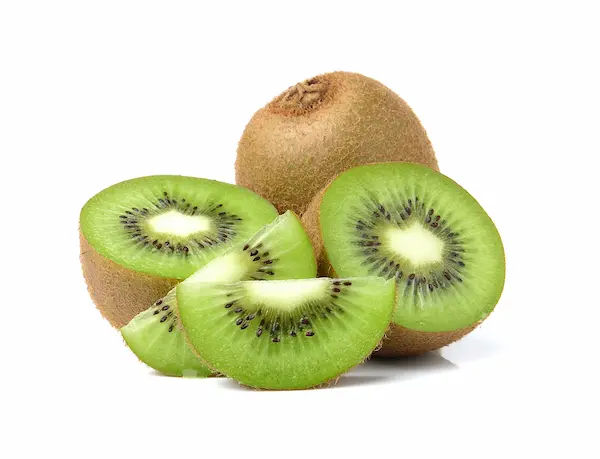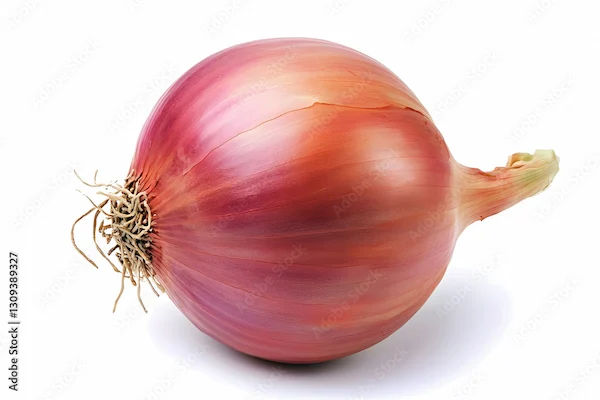Jamun (Java Plum): Uses, Benefits, Nutrition, and Side Effects
Discover jamun benefits, how it may support blood sugar control, and its role among ayurvedic fruits. Learn uses, nutrition, side effects, and safe tips.

Written by Dr. Md Yusuf Shareef
Reviewed by Dr. Shaik Abdul Kalam MD (Physician)
Last updated on 13th Jan, 2026

Introduction
If you’ve ever seen the deep purple, glossy berries called jamun (also known as Java plum, black plum, or Indian blackberry), you might wonder what makes them special. In many South Asian homes and markets, jamun is a seasonal favourite with a tart-sweet taste and rich colour. It’s also one of the ayurvedic fruits traditionally used for wellness. Today, people ask about jamun benefits, especially for blood sugar control, as well as how to eat it safely and what side effects to watch for.
This guide brings together what’s known from nutrition science, diabetes and heart-health guidelines, and research on this fruit, so you can enjoy jamun with confidence.
Consult a Top Nutritionist for Personalised Advice
What is Jamun (Java Plum)?
- Botanical name: Syzygium cumini (family: Myrtaceae)
- Common names: Jamun, Java plum, black plum, Indian blackberry
- Origin: Native to the Indian subcontinent and parts of Southeast Asia; cultivated in tropical regions
- Taste and texture: Astringent, tart-sweet flesh; deep purple skin that can stain the tongue
- Culinary uses: Eaten fresh, or made into chutneys, juices, sherbets, jams/jellies, and vinegar; seeds and bark are used in traditional practice
Like many darker-coloured fruits, jamun’s purple hue signals the presence of anthocyanins—plant pigments with antioxidant properties. While it has a long history in traditional systems of medicine, it’s important to separate tradition from evidence and use jamun as part of a balanced diet, not as a substitute for medical care.
Nutrition Snapshot and Key Compounds
Jamun is a water-rich, seasonal fruit that generally provides:
- Dietary fibre, which supports digestive health and can help you feel fuller
- Vitamin C, an antioxidant that supports immune function and collagen formation
- Potassium, a mineral involved in blood pressure regulation and muscle/nerve function
- Polyphenols, including anthocyanins and other flavonoids, which act as antioxidants
What Antioxidants and Fibre Do (in General)
- Fibre: Helps support regularity, feeds beneficial gut bacteria, and may aid heart and metabolic health as part of an overall healthy diet.
- Anthocyanins: Found in berries, purple grapes, and red cabbage, these pigments have antioxidant activity that helps limit cell-damaging oxidative stress.
- Potassium: Works with sodium to influence blood pressure balance when part of a healthy lifestyle.
- Vitamin C: Supports immune function and acts as an antioxidant.
Evidence-Based Jamun Benefits
Jamun is nutritious on its own and can fit well into many eating patterns. Below is what’s supported by mainstream nutrition guidance and what research suggests about jamun specifically. Where human evidence is limited, that is noted clearly.
Heart and Metabolic Health Support (as Part of a Balanced Diet)
- More fruit, more fibre: Health organisations encourage eating a variety of fruits and vegetables for overall wellbeing, including cardiometabolic health. Fibre-rich foods are associated with better cholesterol profiles and more stable energy levels.
- Potassium advantage: Many fruits provide potassium, which supports healthy blood pressure when combined with reduced sodium intake and an active lifestyle.
- Antioxidant-rich pattern: Diets high in colourful, plant-based foods provide polyphenols that help counter oxidative stress and low-grade inflammation, both relevant to heart health.
Because jamun contributes fibre, potassium, and polyphenols, it can be a smart fruit choice within these broader, evidence-based eating patterns.
Jamun and Blood Sugar Control: What We Know
- Fruit and diabetes: People with diabetes can and should include fruit in their eating plan. Portion control, pairing with protein or healthy fats, and monitoring blood glucose response are key strategies.
- Jamun as a fruit: Like many fresh fruits, jamun provides natural sugars plus fibre and water, which can soften post-meal blood glucose rises compared with sugary drinks or refined sweets. Enjoying a portion with meals and checking your own readings helps you understand your personal response.
- Research on jamun seed and extracts: Jamun seeds and other parts of the plant have been studied in lab and animal models for their potential effects on glucose metabolism. Some small human studies and reviews suggest possible benefits, but the clinical evidence is limited and not definitive.
Supplements made from jamun seeds are not a substitute for proven diabetes treatments.
Bottom line
If you live with diabetes or prediabetes, you can include jamun as part of your overall plan for blood sugar control. Talk to your clinician before using any jamun-based supplements, and never stop or change prescribed medications without medical guidance.
Antioxidant Support from a Purple Powerhouse
The deep colour of jamun reflects its anthocyanin content. Diets rich in anthocyanin-containing foods (like berries and purple grapes) are linked in observational research to markers of vascular and cognitive health. While such associations don’t prove cause and effect, choosing varied, colourful produce—including jamun in season—helps broaden your exposure to beneficial plant compounds.
Digestive Wellness
Jamun provides dietary fibre, which supports regular bowel habits and beneficial gut microbes as part of a fibre-rich eating pattern. The fruit’s astringent taste may feel “drying” in the mouth; if you’re sensitive to astringent foods, drink water and balance jamun with other moist foods.
If you struggle with constipation, focus on total daily fibre, hydration, and movement rather than relying on any single fruit.
Oral Health Notes
Jamun can temporarily stain the tongue and lips purple—harmless but noticeable. Its astringency may give a fresh, puckering feel after eating; rinse your mouth with water to minimise staining.
Traditional Use: Jamun Among Ayurvedic Fruits
In Ayurveda, jamun (including its seed and bark) appears in traditional formulations. Historically, it’s been used for various purposes, including digestive and metabolic concerns.
Important context:
- Traditional use is not the same as proven clinical efficacy.
- Quality and potency of herbal products vary; contamination and mislabelling can occur.
- People with chronic conditions, those who are pregnant or breastfeeding, and those taking medications should seek personalised medical advice before using jamun-based supplements.
Practical Ways to Enjoy Jamun
- Fresh snack: Rinse, remove seeds, and enjoy plain or with a sprinkle of chaat masala.
- Salad topper: Add to fruit or mixed green salads with lemon, mint, or yoghurt.
- Chutneys and relishes: Combine with herbs, aromatics, and spices for a tangy side.
- Yoghurt bowls or overnight oats: Balance sweetness and add texture.
- Frozen treats: Blend into smoothies or freeze as pops for warm-weather refreshment.
Tips for Steadier Blood Sugar
- Pairing: Combine jamun with protein (nuts, seeds, yoghurt) or healthy fats to slow glucose rise.
- Portion awareness: Start with a modest portion and check your personal glucose response if you monitor at home.
- Timing: Including fruit during a mixed meal often produces a gentler glucose curve than eating fruit alone on an empty stomach.
Side Effects, Safety, and Interactions
Jamun, eaten as a food, is generally well tolerated by most people. Consider the following:
Common, Usually Mild Effects
- Temporary tongue or lip staining (purple)
- Mild mouth puckering due to astringency
- If eaten in very large amounts, astringent fruits may contribute to constipation in some people
Allergies
Any fruit can trigger an allergic reaction in susceptible individuals. Discontinue and seek care if you experience hives, swelling, wheezing, or severe itching after eating jamun.
Blood Sugar Considerations
If you use insulin or certain oral diabetes medications, be aware of the chance of low blood sugar (hypoglycaemia). Adding jamun to a meal is usually fine, but introducing jamun seed powders or extracts may complicate glucose management. Discuss any supplement with your clinician and monitor closely.
Medication and Surgery Precautions
Herbal and botanical supplements can interact with medications or affect blood glucose response around procedures. If you plan surgery or a procedure requiring anaesthesia, tell your care team about all supplements and follow their advice on when to stop them.
Special Populations
- Pregnancy and breastfeeding: Jamun as a food is generally considered acceptable in typical amounts. Safety of concentrated seed or bark supplements during pregnancy or breastfeeding is not well established; avoid supplements unless cleared by your clinician.
- Kidney issues and potassium: Many fruits contain potassium. If you follow a potassium-restricted diet, ask your clinician or dietitian how jamun fits your plan.
Quality and Sourcing of Supplements
If you choose a jamun seed product, look for third-party testing (for example, USP, NSF, or Informed Choice) to reduce the risk of contamination or mislabelling. Keep in mind, quality seals do not guarantee safety or effectiveness for your specific health needs.
How Jamun Fits Into a Healthy Eating Pattern
- Variety first: Aim for a colourful mix of fruits and vegetables daily. Jamun can be one of several fruits you rotate through the week.
- Whole foods over juices: Eating the whole fruit offers fibre and slower sugar absorption compared with juices or sweetened beverages.
- Balanced plate: Pair fruit with protein, healthy fats, and high-fibre carbohydrates. Think yoghurt + jamun + nuts, or a salad with greens, beans, and a handful of jamun.
Who Might Especially Enjoy Jamun?
- People looking to expand fruit variety beyond common berries and apples
- Those seeking plant diversity and anthocyanin-rich options
- Individuals managing blood sugar who want to enjoy fruit in a structured, mindful way (with personalised coaching from a clinician or dietitian)
When to Seek Medical Advice?
- Symptoms of low blood sugar
- Shakiness, sweating, confusion, irritability, rapid heartbeat, or lightheadedness—treat promptly and speak with your clinician if episodes are frequent.
- If you plan to try jamun seed powders or extracts and take diabetes, blood pressure, or other chronic medications
- If you have chronic kidney disease and need help fitting fruit into a potassium-restricted plan
- If pregnant, breastfeeding, or preparing for surgery
Conclusion
Jamun (Java plum) is a tasty, purple, seasonal fruit that can bring colour, fibre, vitamin C, potassium, and antioxidant compounds to your plate. It pairs well with meals and snacks and can fit into many healthy eating patterns—including for people working on blood sugar control. While jamun holds a respected place among ayurvedic fruits, modern evidence for jamun seed supplements remains limited. Enjoy the fruit, keep portions mindful, and lean on your healthcare team for personalised guidance—especially if you live with diabetes, are pregnant or breastfeeding, or take medications.
Consult a Top Nutritionist for Personalised Advice
Consult a Top Nutritionist for Personalised Advice

Ms. Neelanjana J
Dietician
5 Years • Bsc., Msc. Nutrition and Dietetics specialised general weight management, PCOS/PCOD weight loss and Diabetes management. A clinical dietitian with 4+ year experience specializing in evidence-based, result-oriented nutrition therapy. I have extensive experience in weight loss, thyroid management, PCOD/PCOS, weight gain, and diabetes & prediabetes care. My approach is personalized, practical, and sustainable—focusing on helping individuals achieve long-term lifestyle change rather than quick fixes. I work closely with clients to understand their medical history, lifestyle, and goals, and then design customized diet plans that support hormonal balance, metabolic health, and overall wellbeing. My goal is to make nutrition simple, realistic, and effective—so you see measurable results and feel your healthiest self.Auther in Health benefits of jackfruit (Artocarpus heterophyllus Lam.) seeds: A review (2023) The Pharma Innovation Journal Co- Auther in Malnutrition in Women: A review (2023) The Pharma Innovation Journal. Highfield Level 3 in HACCP. Highfield Level 4 International Award in Food Safety Managment
Bengaluru
Apollo Clinic, JP nagar, Bengaluru

Ms. Soma Saha
clinical nutrition
17 Years • B.Sc. - Home Science (Food & Nutrition), M.Sc. - Home Science (Food & Nutrition)
Kolkata
Dr Utsa Basu Clinic, Kolkata
(50+ Patients)

Ms. Samapti Maity
Dietician
16 Years • MSc. (Clinical Nutrition & Dietitics), NDEP, Course in Maternal Infant Young Child Nutrition.Diploma in Sports Nutrition, Diploma in Diabetic educator, FODMAP Specialist
Kolkata
BIENETRE CLINIC, Kolkata

Dr. Anupriya C
General Physician/ Internal Medicine Specialist
5 Years • MBBS, MD, General Medicine
Bengaluru
Apollo Clinic, JP nagar, Bengaluru
Dr Sumanth R
General Physician
2 Years • MBBS
Bengaluru
PRESTIGE SHANTHINIKETAN - SOCIETY CLINIC, Bengaluru
Consult a Top Nutritionist for Personalised Advice

Ms. Neelanjana J
Dietician
5 Years • Bsc., Msc. Nutrition and Dietetics specialised general weight management, PCOS/PCOD weight loss and Diabetes management. A clinical dietitian with 4+ year experience specializing in evidence-based, result-oriented nutrition therapy. I have extensive experience in weight loss, thyroid management, PCOD/PCOS, weight gain, and diabetes & prediabetes care. My approach is personalized, practical, and sustainable—focusing on helping individuals achieve long-term lifestyle change rather than quick fixes. I work closely with clients to understand their medical history, lifestyle, and goals, and then design customized diet plans that support hormonal balance, metabolic health, and overall wellbeing. My goal is to make nutrition simple, realistic, and effective—so you see measurable results and feel your healthiest self.Auther in Health benefits of jackfruit (Artocarpus heterophyllus Lam.) seeds: A review (2023) The Pharma Innovation Journal Co- Auther in Malnutrition in Women: A review (2023) The Pharma Innovation Journal. Highfield Level 3 in HACCP. Highfield Level 4 International Award in Food Safety Managment
Bengaluru
Apollo Clinic, JP nagar, Bengaluru

Ms. Soma Saha
clinical nutrition
17 Years • B.Sc. - Home Science (Food & Nutrition), M.Sc. - Home Science (Food & Nutrition)
Kolkata
Dr Utsa Basu Clinic, Kolkata
(50+ Patients)

Ms. Samapti Maity
Dietician
16 Years • MSc. (Clinical Nutrition & Dietitics), NDEP, Course in Maternal Infant Young Child Nutrition.Diploma in Sports Nutrition, Diploma in Diabetic educator, FODMAP Specialist
Kolkata
BIENETRE CLINIC, Kolkata

Dr. Anupriya C
General Physician/ Internal Medicine Specialist
5 Years • MBBS, MD, General Medicine
Bengaluru
Apollo Clinic, JP nagar, Bengaluru
Dr Sumanth R
General Physician
2 Years • MBBS
Bengaluru
PRESTIGE SHANTHINIKETAN - SOCIETY CLINIC, Bengaluru
More articles from General Medical Consultation
Frequently Asked Questions
Is Jamun Good for Diabetes?
Jamun can be part of a balanced meal plan for diabetes, similar to other fruits. It provides fibre and water, and its sugars come packaged in a whole food. Some research on jamun seed suggests potential glucose-lowering effects, but human evidence is limited. For blood sugar control, focus on overall eating patterns, portion size, and your personal glucose response. Do not replace prescribed diabetes treatments with jamun or jamun supplements.
What are the Top Jamun Benefits?
Key jamun benefits include being a source of fibre, vitamin C, potassium, and anthocyanin-type antioxidants. These nutrients support overall wellness and fit into eating patterns associated with heart and metabolic health. As one of the ayurvedic fruits, jamun also has a long traditional history, though supplements made from its seeds need more high-quality human research.
How Should I Eat Jamun for Better Blood Sugar Control?
Pair jamun with protein or healthy fats (for example, yoghurt, nuts, or seeds), and include it as part of a mixed meal. Start with a modest portion and monitor your own blood glucose response if you track at home. Spread fruit servings across the day rather than eating large amounts at once.
Are Jamun Seed Powders Effective?
Some small studies and reviews suggest possible benefits for glycaemia, but the overall clinical evidence is not strong or conclusive. Product quality varies widely. If you’re considering a jamun seed supplement, consult your healthcare professional first, especially if you take diabetes medications.
Are There Any Side Effects of Jamun?
Most people tolerate jamun well as a food. Possible mild effects include temporary tongue staining and a puckering sensation due to astringency. If you have diabetes, monitor for low blood sugar when changing your diet or adding supplements. Avoid jamun seed or bark supplements in pregnancy or breastfeeding unless your clinician advises otherwise.




